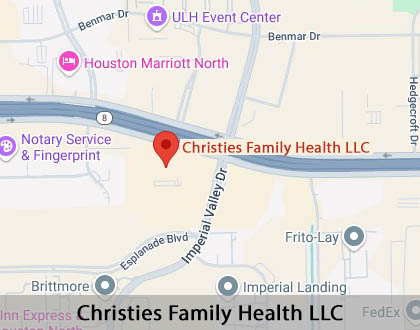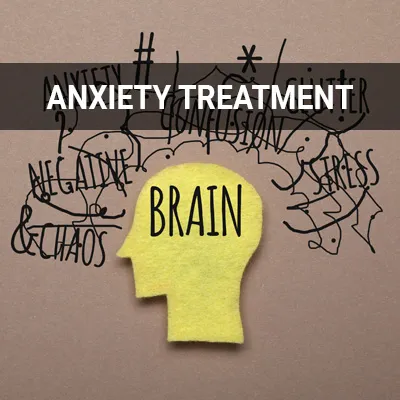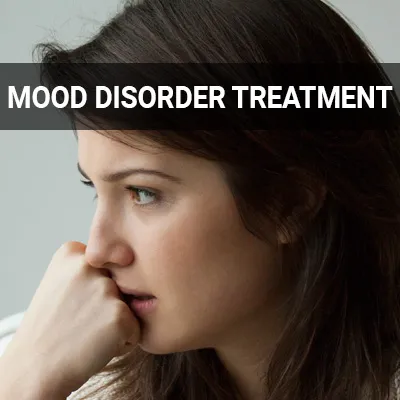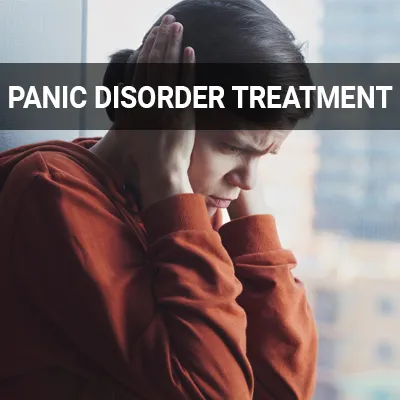Counseling Houston, TX
Mental health counseling helps people work through troubling times and situations. When life presents overwhelming circumstances, people need help from caring professionals. Christies Family Health LLC helps families, couples, and individuals handle stress, grief, transitions, and other challenging life circumstances.
If you struggle with personal or professional issues that feel like more than you can handle, you do not have to deal with them alone. Our psychiatric team offers counseling in Houston and the surrounding area. Call (832) 915-1818 for more information or to schedule an appointment.
What is Counseling
People use therapy and counseling interchangeably. They both aim to improve a person’s mental health and ability to cope. Both can be used in combination with psychiatric medication to improve mental wellness. However, there are key differences to be aware of when seeking help. Therapy can take years and tends to be more open-ended and ongoing, while counseling works toward a measurable goal for a set amount of time. Therapy tends to be more involved, with a mental health professional treating someone on a regular, long-term basis.
Counseling, on the other hand, typically involves working with a practitioner on a specific issue for a shorter amount of time. Therapy may include some counseling on specific problems. However, therapy’s overarching aim is to examine an individual’s underlying motivations, thoughts, and behavior patterns as well as how one sees one’s self in the world.
“Therapy can take years and tends to be more open-ended and ongoing, while counseling works toward a measurable goal for a set amount of time.”
Benefits of Counseling
Life is unpredictable, and situations arise that can test a person’s limits and make it difficult to cope. When approaching difficult circumstances, it can help to have a professional act as a guide through a problem that seems to be too much. Counseling offers someone a chance to work with a neutral third party who will objectively analyze their situation and provide sound advice based on years of experience. Other benefits of counseling include:
- ListItemText
- A better ability to see one’s options
- An easing of anxiety
- Better coping and decision-making skills
- Effective communication and boundary setting
- Improved self-confidence
- Less anger and resentiment
- Relief from stress
Through counseling, we help people see a problem more clearly and give them the confidence to deal with it positively and productively.
“When approaching difficult circumstances, it can help to have a professional act as a guide through a problem that seems to be too much.”
Types of Counseling
There are many types of counseling. The one thing they all have in common is they are short-term and solution-based. Counseling narrows in on a particular issue and works to resolve or improve that issue within a certain amount of time.
Counselors work with individuals, families, and couples struggling with a particular issue or crisis. For example, if an individual is suffering from substance abuse, they might work with a counselor to help quit their addiction. A couple trying to overcome one partner’s infidelity could go to couples counseling to find a way to repair their relationship. A family may need bereavement counseling after the death of a loved one.
Our team will also work with people to improve their handling of a specific issue, such as interpersonal communication or stress management at work. Infidelity, death, illness, recent disability, job loss, and addiction are all examples of issues that can be too difficult for people to deal with alone, and thanks to this type of mental health service, they do not have to.
“Counseling narrows in on a particular issue and works to resolve or improve that issue within a certain amount of time.”
Check out what others are saying about our mental wellness services on Yelp: Counseling in Houston, TX
Types of Counselors
Many types of mental health professionals provide counseling services. Counselors typically hold advanced degrees and diagnose and help with mental health conditions. Types of mental health professionals that provide counseling include:
Clinical Social Worker
This type of professional has a graduate degree in social work. They are trained to make diagnoses and provide individual and group counseling. Clinical social workers often act as advocates and handle case management.
Certified Alcohol and Drug Abuse Counselor
Working with inpatients and outpatients in a clinical setting, these counselors have specific training in dealing with substance abuse disorders. Substance abuse counselors may work in private practice, clinics, or rehabilitation centers. They work with individuals and groups.
Licensed Professional Counselor
Licensed professional counselors have master’s degrees in psychology or a related field. They work with individuals and groups. These counselors are trained in treating mental illness but may provide other forms of counseling, such as career counseling.
Marital and Family Therapist
This type of professional usually works with couples and families. Marital and family therapists hold master’s degrees with special training in marital and family therapy. Like other professionals, they are trained to diagnose mental health conditions and can work with either individuals or groups.
Mental Health Counselor
Like licensed professional counselors, these clinicians have master’s degrees and are trained to work with individuals and groups. However, mental health counselors work specifically in mental health. In addition to their master’s degrees, they have several years of supervised clinical work experience.
“Counselors typically hold advanced degrees and diagnose and help with mental health conditions.”
Questions Answered on This Page
Q. How is counseling different from therapy?
Q. Why does it benefit a person to seek counseling?
Q. What are the different types of counseling?
Q. What are the main types of counselors?
Q. How does the counseling treatment process work?
People Also Ask
Q. What are the signs and types of depression?
The Treatment Process
Counseling typically takes place over 12 sessions or less and works toward a specific goal. Each session usually lasts about an hour, and sessions tend to be weekly. The particulars of each patient’s plan depend on several factors, including the type of counseling.
The counseling process is a collaborative effort. The first step is for the counselor to establish a rapport with the patient, discuss the issue the patient needs help with, and what the patient hopes to gain from treatment. Then the counselor and patient will examine the issue and discuss what needs to happen to produce the desired change or improvement. The clinician will offer suggestions on how to reach the goal of treatment, and the patient will try and implement these suggestions. Towards the end of the treatment, the patient and counselor will evaluate how well the treatment plan is working and try different strategies if needed. Also, If medication is part of the patient's treatment program, the patient will also meet regularly with a psychiatrist to make sure the medication is working and not causing any harmful side effects.
“The first step is for the counselor to establish a rapport with the patient, discuss the issue the patient needs help with and what the patient hopes to gain from treatment.”
Frequently Asked Questions
Q. How much does counseling cost?
A. Each patient’s situation is different. Cost depends on the number of sessions and type of therapy involved. Many health insurance plans cover some mental health services. We advise patients to check with their provider about the specifics of their plan.
Q. Can I see the same counselor for individual counseling that I see for couples counseling?
A. When a counselor sees you for individual sessions, they are biased toward your point of view. Therefore that disqualifies them from being an effective neutral third party for counseling you and your partner. If you are already in couples counseling with one of our team members, they will refer you to someone else for individual counseling.
Q. How long will treatment take?
A. Counseling typically involves 6 to 12 weekly sessions. However, each person’s needs and reasons for seeking counseling are different. In the first session, we will examine your issue and set measurable goals for change. Many find they can accomplish their goals in a few sessions, while others find they need all 12.
Q. How do I know if I need short-term counseling or long-term therapy?
A. This depends on the nature of the issues you are bringing to therapy. If you need help with a sudden life change, overcoming a specific bad habit, or dealing with a crisis, short-term counseling is probably for you. However, if you are managing a chronic mental health condition or are trying to understand what is behind a persistent negative thought and behavior pattern, consider long-term or ongoing therapy.
Q. Who do you provide counseling for?
A. Our team works with people of all ages, including children. We provide family therapy as well as couples therapy. During our many years in practice, we have helped individuals from all walks of life cope with a range of emotional and mental difficulties and develop positive coping strategies.
Start Feeling Better – Visit Us Today
By visiting us as soon as possible, our team can help get you the professional treatment you need. Instead of waiting around and allowing the symptoms to get worse, we can provide you with treatment options.
Definitions
Call Us Today
Every day, we provide counseling to individuals, couples, and families so they may overcome emotional and mental difficulties. No one has to struggle alone. We can help. Call us now at 832-915-1818 to learn more and schedule an appointment.
Helpful Related Links
- American Psychiatric Association (APA). American Psychiatric Association (APA). 2024
About our business and website security
- Christies Family Health LLC was established in 2021.
- We accept the following payment methods: American Express, Check, Discover, MasterCard, and Visa
- We serve patients from the following counties: Harris County
- We serve patients from the following cities: Houston, Aldine, Jersey Village, Humble, and East Aldine
- Norton Safe Web. View Details
- Trend Micro Site Safety Center. View Details
Back to top of Counseling

















